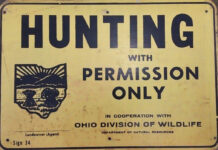In the upside down world of the U.S. Department of Agriculture’s current leaders, sound science is what they say it is and food safety seems to be what is best for agribusiness. Every other differing idea or person has a nearly perfect chance of being ignored, talked to death or litigated to death.
Case in point. Take the case of Creekstone Farms, the small, Kansas-based premium beef slaughterer and seller. Four months after America’s first BSE-positive (mad) cow was discovered in December 2003, USDA denied Creekstone’s request to voluntarily test its slaughter cattle for BSE.
The private testing, argued Creekstone, was a reasonable, market-based approach to ease customer concerns – especially its highly valued Japanese customers – over the safety of U.S. beef.
Not so, said USDA and its big packer backers. USDA had the law on its side – a 1913 one it dusted off and bent to its purpose.
The Big Four packers had their size: they kill 88 out of every 100 cattle in America and they didn’t want the added expense of testing a single one of them – especially since the taxpayers would fund USDA’s “science-based” testing.
For nearly two years thereafter, Creekstone negotiated with USDA to chart a government-approved path through the bureaucratic thicket. All came to naught.
Small victory. Finally, in March 2006, the tiny packer filed suit in federal court to get access to the BSE test kits USDA claimed it solely controlled.
March 29, the U.S. District Court in Washington handed Creekstone the test kits, noting the agency’s concerns over what the results of the private tests might imply to customers were not within USDA’s “statutory responsibilities.” (The court also gave USDA until June 1 to appeal the decision.)
The key is the court’s view that USDA has no legal authority to judge whether or not consumers might perceive Creekstone’s privately, completely tested beef better or safer than other packers’ mostly untested beef.
For years, USDA has played the nanny role when confronted with private efforts to differentiate products through testing or labeling or both.
Resistance. Most firms wanting to promote food products as “hormone free” or “BSE safe” have been met at the marketplace door – and, often as not, the courthouse door – by USDA challenges that the labels wrongly imply similar, unlabeled products are of less quality and thereby less safe.
I know, I know. Such counter-intuitive regulation is the anathema of the Bush Administration’s rough-and-tumble, free market philosophy. But its chief benefactors, usually giant, multinational agbiz, love it because USDA’s backdoor rules keeps smaller, innovative competitors from sniping Big Boy marketshare.
And, the vaunted consumer, whom USDA says it is protecting by not allowing the labeling, has less information about the product’s quality, safety and origin.
Repeat performance. A replay of this silly regulatory dance will be reprised soon. April 3, Monsanto petitioned both the Federal Trade Commission and the Food and Drug Administration to order a halt to what it calls the “deceptive milk labeling and advertising” some dairy processors use in marketing their dairy products as “rbGH-free,” meaning the fluid milk in the product does not come from cows injected with Monsanto’s production-boosting hormone Posilac.
Monsanto, the only maker and seller of the hormone, claims in its request that the rbGH-free labeling “disparage(s) milk and den(ies) farmers a choice in using approved technologies.”
Seriously. No, I’m not making this up. Monsanto truly believes that hormone-free labeling is “deceptive advertising













